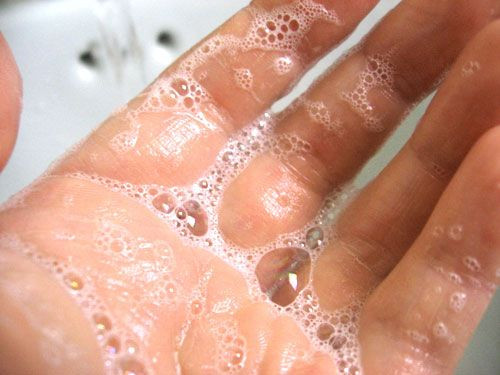FDA Gets Tough On Antibacterial Soap; Requires Makers To Prove Safety and Effectiveness

No doubt most antibacterial soaps on the market safely eliminate germs on contact, as promised. But the Food and Drug Administration (FDA) would now like to see that in data sets. On Monday, the regulator proposed a new rule to require manufacturers to conduct clinical trials demonstrating not only safety but superiority; these products must work better than hand-washing with water and plain soap.
Should companies fail to prove long-term safety and efficacy by September 2016, they would be forced to either reformulate or re-label the product. The new rule comes as part of a larger review of products by the FDA to ensure safety and efficacy but does not include related products, such as hand sanitizers, wipes, or similar products used in health care settings.
Today, millions of Americans use antimicrobial soaps from morning shower to night, expecting these products to decimate, if not eliminate, microbial populations on the body, kitchen counter, wherever spills occur. However, no clinical evidence suggests that such products — beyond merely killing germs — prevent illness more effectively than washing with water and plain soap. Worse, evidence from animal studies suggests that long-term exposure to chemicals in antimicrobial soaps, including triclosan and triclocarban, may disrupt levels of thyroid hormone, estrogen, and testosterone.
“Antibacterial soaps and body washes are used widely and frequently by consumers in everyday home, work, school, and public settings, where the risk of infection is relatively low,” Janet Woodcock, director of the FDA’s Center for Drug Evaluation and Research, told reporters in a conference call Monday. “Due to consumers’ extensive exposure to the ingredients in antibacterial soaps, we believe there should be a clearly demonstrated benefit from using antibacterial soap to balance any potential risk.”
The regulator first broached the subject in 2009, after the product category had become thoroughly ensconced on the supermarket shelf. Although antibacterial soaps with triclosan and triclocarban had been pioneered by hospitals in the 1950s, manufacturers only began using the chemicals in consumer products beginning in the 1990s. Now, the FDA wants to review the accumulated scientific information on products containing the two chemicals, including possible data from clinical studies conducted by manufacturers.
However, the FDA said there was no evidence — on the other hand — that antimicrobials caused any harm in humans, nor is the product category essential for the imminent survival of the species. “We want to be very clear: Washing with plain soap and water is the biggest step people can take in preventing the spread of germs to others,” Woodcock said.



























